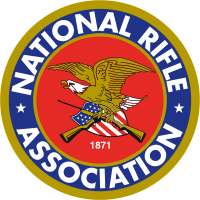 The National Tracing Center is the only place in the nation authorized to trace gun sales. Here, researchers with the Bureau of Alcohol, Tobacco, Firearms and Explosives make phone calls and pore over handwritten records from across the country to track down gun owners. I
The National Tracing Center is the only place in the nation authorized to trace gun sales. Here, researchers with the Bureau of Alcohol, Tobacco, Firearms and Explosives make phone calls and pore over handwritten records from across the country to track down gun owners. I
n contrast with such state-of-the-art, 21st-century crime-fighting techniques as DNA matching and digital fingerprint analysis, gun tracing is an antiquated, laborious process done mostly by hand. The government is prohibited from putting gun ownership records into an easily accessible format, such as a searchable computer database.
For decades, the National Rifle Association has lobbied successfully to block all attempts at such computerization, arguing against any national registry of firearm ownership.
"Those who wonder what motivates American gun owners should understand that perhaps only one word in the English language so boils their blood as 'registration,' and that word is 'confiscation,' " according to an NRA fact sheet.
Concerns about government regulation of gun ownership have limited the resources available to the ATF, led to strict regulatory restrictions and left the agency without leadership, according to interviews with dozens of former and current ATF officials and examination of thousands of pages of internal documents. The agency still has about the same number of agents it had nearly four decades ago: 2,500. The firearms bureau inspects only a fraction of the nation's 60,000 retail gun dealers, taking as much as eight years between visits to stores. By law, the ATF cannot require dealers to conduct a physical inventory to determine whether any guns have been lost or stolen.





 Six people – including a child – were shot during a carnival parade in Louisiana on...
Six people – including a child – were shot during a carnival parade in Louisiana on... On Friday a federal judge dropped two of the four charges against Luigi Mangione — the...
On Friday a federal judge dropped two of the four charges against Luigi Mangione — the...






























